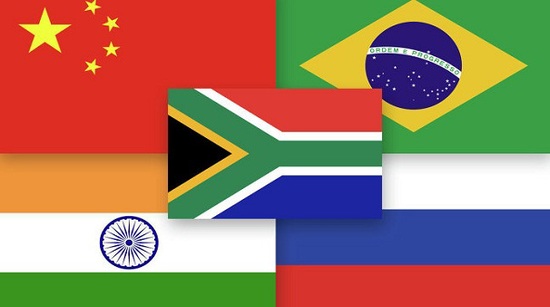Big summits are rarely places to get much work done. Gone are the days of San Francisco and Bretton Woods, when leaders were able to discuss difficult topics for days or even weeks, undisturbed by a round-the-clock operating global media hungry for seemingly grand but often meaningless soundbites and declarations. The major problem today is that the strategic importance of today’s glitzy summitry is vastly overrated, as became clear in 2009, when some analysts christened the G20-summit held in London as “Bretton Woods II”, a wishful but unrealistic analogy to the 3 week-long conference in 1944 which saw the birth of the IMF, GATT and the International Bank of Reconstruction and Development (IBRD).
Considering these limiting facts, the third BRICS summit, held on April 14th in Sanya (China), and for the first time with a capital “S”, was a remarkably meaningful encounter. Fundamental differences of opinion between the five remain, as would be expected of any gathering of five highly diverse nations. China and Russia, two autocratic regimes, are unlikely to engage in a conversation about promoting political freedom with the three chaotic but vibrant democracies, Brazil, India and South Africa. In the same vein, a myriad of thorny issues – ranging from serious border disputes to currency wars, needed to be carefully circumvented. During the press conference following the talks, the BRICS’ leaders therefore went out of their way to point to those areas where consensus – the magic word during all BRIC summits- had been reached.
Yet contrary to the first and second BRIC summit, where not much more than cookie cutter declarations had emerged, the Sanya Declaration is more than that, principally because China and Russia came remarkably close to supporting India’s and Brazil’s bid for permanent membership of the UN Security Council. While neither China nor Russia have taken any formal position, this does represent a meaningful step, as Brazil’s and India’s entry would invariably reduce the current members’ weight in what remains the most powerful and exclusive international club.
South Africa’s successful integration is another important step. Adding new members often reduces an institution’s capacity to find consensus, yet this seems not to have been the case in Sanya. While China initiated South Africa’s integration largely on its own, it is Brazil that is set to highly benefit from the addition. This has four major reasons.
First, South Africa’s addition gives the BRICS a truly global dimension, thus increasing its representativeness, and lending further weight to its joint statements. It also ends Brazil’s geographic isolation. Previously, the group consisted of three geographically connected Asian countries plus a faraway member in South America. Relations between China, Russia and India, after all, are centuries old and marked by their proximity, contrary to ties with Brazil, which were insignificant before the end of the Cold War. With South Africa’s addition, this changes, and the group’s epicenter can no longer be said to lie in Asia.
Secondly, Brazil’s role as the odd man out was compounded by its status as strategic junior partner. Despite Brazil’s astounding economic growth, it still does not match its nuclear arms owning fellow BRIC members in terms of hard power. Russia is certainly in decline, but its permanent status on the security council, its natural resources, and its military might would still cause any analyst to rank it ahead of Brazil regarding strategic importance. Now, South Africa is the new junior member, fundamentally enhancing Brazil’s standing in the club.
Thirdly, South Africa’s entry strengthens Brazil’s negotiating position within the group because South Africa is similar to Brazil in two key aspects: It is a rising power that seeks admission to the UN Security Council, and it is a democracy. With now three BRICS members – India, Brazil and South Africa – seeking a permanent seat, Russia and China have an increasingly difficult time rejecting such claims. In addition, South Africa is no rival to Brazil’s ambitions, as any UNSC expansion would include both South Africa and Brazil, along with India.
Finally, South Africa’s regime type matters. No democracy is perfect, and the BRICS’ new member is no exception. Yet, South Africa’s admission gives those heads of state at the BRICS summit which have been elected freely and fairly the majority, strengthening the club’s overall legitimacy and improving its international image. China and Russia will neither democratize nor turn into beacons of human rights, and such topics are unlikely to ever be discussed at BRICS summits. Still, handing the much coveted BRICS membership to an emerging democracy helps disperse the myth that autocratic, state-led countries such as China have the edge over messy, teeming democracies such as India, Brazil or South Africa. What is more, any future addition – be it Turkey or Indonesia – is set to strengthen this welcome trend.
Read also:
The ‘S’ in BRICS: Can South Africa represent a continent?
The semester’s most popular articles: “Brazil and the dilemma of regional leadership” and more
Image credit: Official website of Russia’s presidency in BRICS









